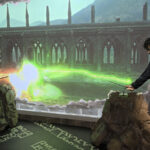
The New GPS for Parents: Finding Guidance in Brain Research
by JoAnn Deak, Ph.D.
It has become a common statement emanating from the mouths of parents: I wish my teen came with an owner’s manual! For years we have relied on the wisdom of past generations, our own upbringing and a host of books, articles and now, blogs filled with ‘expert’s’ advice.
Research then entered the picture; giving parents more data based advice. One of the earliest and best examples was the study released from Harvard about fifteen years ago, dubbed ‘raising the water level.’ In that study, children whose parents allowed them more freedom of movement and exploration during the toddler years showed a significant difference in intellectual development. This was accomplished by moving harmful objects up out of the reach of children so that they were not constantly stopped from exploring and touching and movement. The older they got and the farther they could reach or move, the higher things were raised above their grasp. In other words, ‘raising the water level’ raised the richness of their experiences, and thus enhanced their growing brains.


















